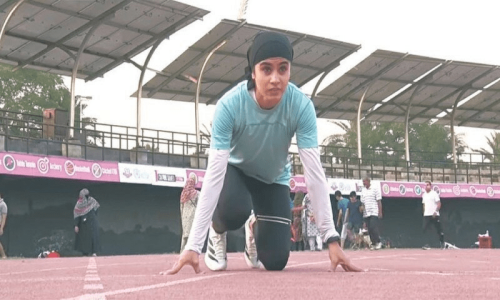ISLAMABAD: While the United National General Assembly (UNGA) was ongoing, we were busy fighting and winning a nuclear war on Twitter and ignoring a Unicef report that ranked Pakistan 149th in terms of its health facilities, Senator Farhatullah Babar said at a seminar on Tuesday.
Mr Babar was speaking at ‘Democracy 2030, Agenda for Sustainable Development’, organised by the Shaheed Bhutto Foundation (SBF) at the Shaheed Zulfikar Ali Bhutto Institute of Science and Technology.
“Currently 25 million children are out of school in Pakistan, 45pc of enrolled children have been suffering from a learning crisis, almost 40pc are stunted. Water scarcity has caused people to migrate in Balochistan,” he said.
Mentioning a recent large protest in Balochistan against the Indian prime minister, Mr Babar said: “I am sure that if the people of Balochistan would be allowed to protest freely, they would have protested the issue of missing persons or for the availability of water.”
He said achieving the Sustainable Development Goals (SDGs) were necessary in order to strengthendemocracy, adding: “SDGs-related issues should be discussed on the floor of the Council of Common Interest.”
He said there was great potential for cooperation between India and Pakistan on the environment and climate change, but political will and wisdom is required to recognise that a principled position on Kashmir and support for their cause could go side-by-side with normalising relations in other areas.
“However, we also have to remove obstacles in the way of prosecuting the Mumbai terror attack [suspects] and cooperating with the investigations into the Pathankot attack. We will gain and not lose through such cooperation.”
The head of the Centre of Civic Education Pakistan, Zafarullah Khan, said: ”Today 45pc of people live below the poverty line, and if a child is born today we cannot guarantee whether he will be enrolled in school or not. We need direction, which comes through the Constitution.”
He said Pakistanis had mismatched priorities, as five year plans were being made without holding a census.
“Currently, there is a perfect and unanimous Constitution, but implementation is the responsibility of the executive.”
Human rights activist Asif Khan said not a single country in the world had a perfect democracy in the 20th century, and it was expected that the 21st century would herald democracy all over the globe.
“However, during the last few years, basic human rights are being curbed and barriers are increasing at the borders of different countries,” he said.
The chief executive of the SBF, Sikandar Ali, also spoke at the event.
He said strengthening democratic institutions was the order of the day, as it would also ensure the country’s development.
Published in Dawn, September 28th, 2016













































Dear visitor, the comments section is undergoing an overhaul and will return soon.